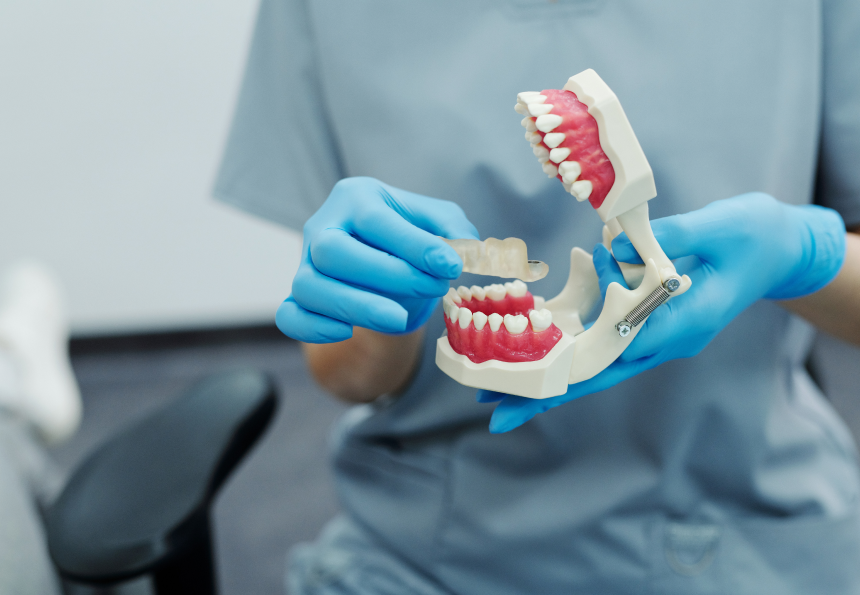A Guide to Typical Dental Problems That Require a Dentist's Treatment
Recognizing the variety of oral conditions that demand professional treatment is paramount for maintaining optimum dental health. Toothaches, as an example, can be symptomatic of serious concerns such as cavities, broken teeth, or abscesses, each requiring details interventions like dental fillings or origin canals. Gum illness, from the onset of gingivitis to much more serious periodontitis, emphasizes the significance of normal oral check-ups and cleansings. Furthermore, influenced knowledge teeth and jaw disorders can introduce substantial pain and difficulties. Making certain prompt sees to the dental professional can minimize these concerns effectively, however what specifically are the treatments and indications involved?
Toothaches
Toothaches are an usual dental condition that can vary from light discomfort to extreme discomfort, typically indicating a hidden issue that requires expert attention. This pain can come from a selection of sources, consisting of oral cavities, cracked or fractured teeth, and dental abscesses. Each of these conditions presents considerable threats if left neglected, possibly causing much more serious issues.
Oral tooth cavities, also understood as cavities, are created by the accumulation of plaque that deteriorates tooth enamel, leading to openings or pits in the impacted teeth. Abscesses are uncomfortable infections at the root of a tooth or in between the gum tissue and a tooth, generally resulting from serious decay or neglected tooth cavities.
Effective therapy of toothaches includes addressing the origin. This might consist of fillings for tooth cavities, crowns for split teeth, or origin canals and anti-biotics for abscesses. Very early treatment by an oral expert can stop additional degeneration and alleviate discomfort, making sure optimum dental health and wellness.
Gum Disease

The primary reason of gum tissue disease is microbial plaque, a sticky, anemic film that frequently bases on teeth. Poor oral health, smoking cigarettes, hereditary predisposition, and specific clinical conditions, such as diabetic issues, can exacerbate the risk of establishing gum tissue condition. Normal oral exams are important for early discovery and administration of this condition.
Therapy for gum tissue disease ranges from specialist dental cleansing and scaling to advanced procedures like origin planing and gum surgical procedure, relying on the extent. Maintaining excellent dental hygiene methods, consisting of brushing twice daily, flossing, and utilizing an antibacterial mouthwash, can dramatically lower the threat of gum condition and promote much healthier periodontals.
Tooth Cavities
Tooth cavities, also understood as tooth decays, are an usual dental condition defined by the devastation of tooth enamel because of this acid-producing bacteria in the mouth. These read review germs grow on sugars and starches from food and beverages, producing acids that slowly erode the enamel, resulting in dental caries formation.
Early-stage tooth cavities may not reveal symptoms, however as they progress, they can cause toothache, level of sensitivity to hot or cool, visible openings or pits in the teeth, and staining. If left untreated, dental caries can permeate much deeper layers of the tooth, potentially resulting in extreme pain, infection, and even tooth loss.
Preventing dental caries entails a mix of great dental hygiene practices and dietary habits. Routine cleaning with fluoride tooth paste, flossing, and routine oral check-ups are essential. Dental experts might likewise advise additional precautionary actions, such as fluoride therapies and oral sealants, to secure teeth from decay.
Minor dental caries can be resolved with oral fillings, which recover the tooth's framework. More innovative cases might require crowns or even root canal therapy if the decay has gotten to the tooth's pulp.
Impacted Knowledge Teeth
Affected wisdom teeth are a prevalent dental problem that takes place when the 3rd molars, frequently described as knowledge teeth, fall short to fully emerge or line up correctly within the mouth. This condition usually arises from inadequate room in the jaw or an abnormal development angle of the teeth. Influenced knowledge teeth can lead to a selection of complications, including discomfort, infection, and damage to adjacent teeth.
When knowledge teeth become influenced, they are typically partly erupted or remain completely below the gum tissue line. This partial eruption can develop a pathway for bacteria to go into the gums, resulting in infections that materialize as swelling, pain, and even high temperature (dentists eugene). Additionally, impacted knowledge teeth can put in pressure on bordering teeth, potentially creating crowding or shifting
A detailed oral exam, normally entailing X-rays, is important for identifying influenced knowledge teeth. Regular dental check-ups are suggested to keep an eye on the problem and keep oral health and wellness.
Jaw Conditions
Conclusion

Dental cavities, additionally known as cavities, are triggered by the build-up of plaque that wears down tooth enamel, leading to openings or pits in the influenced teeth. Abscesses are agonizing infections at the origin of a tooth or in between a tooth and the gum tissue, commonly resulting from severe decay or neglected cavities.
Impacted knowledge teeth are a common dental problem that happens when the third molars, generally referred to as knowledge teeth, fall short to completely arise or line up properly within the mouth. Affected wisdom teeth can lead to a variety of difficulties, including damage, infection, and pain to adjacent teeth.
Furthermore, affected knowledge teeth can apply stress on surrounding teeth, possibly causing crowding or changing.